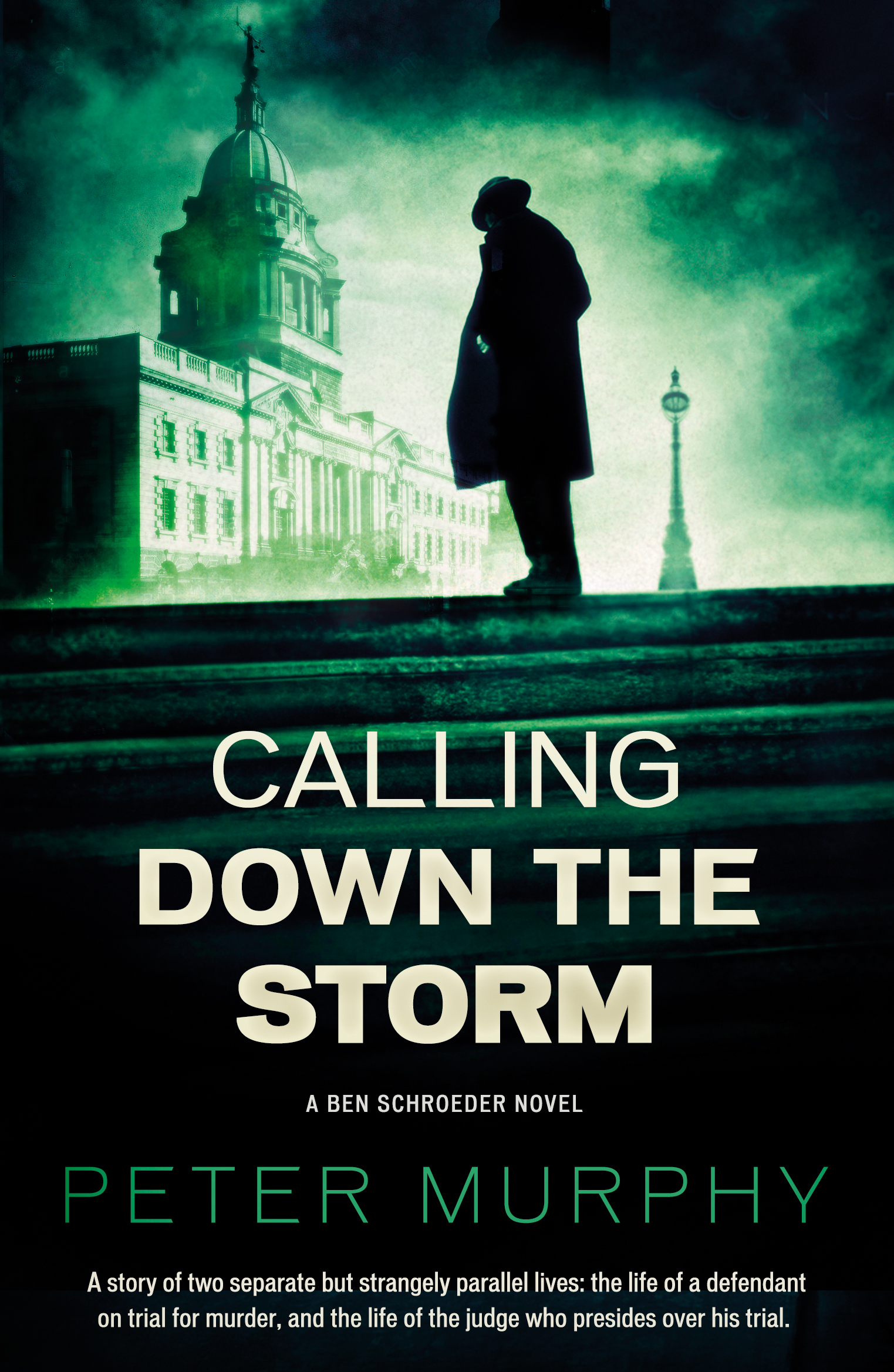Book review: Calling down the storm, by Peter Murphy
“Judge not, lest ye be judged” goes the Biblical saying. But what happens when the judge himself is under suspicion? This is the awful prospect facing a recently appointed High Court judge in Peter Murphy’s absorbing new courtroom thriller, Calling Down the Storm. Reviewed by Paul Magrath. In the pages of this novel, notorious historical
“Judge not, lest ye be judged” goes the Biblical saying. But what happens when the judge himself is under suspicion? This is the awful prospect facing a recently appointed High Court judge in Peter Murphy’s absorbing new courtroom thriller, Calling Down the Storm. Reviewed by Paul Magrath.

In the pages of this novel, notorious historical figures like Lord Lucan rub shoulders with the complex characters of Murphy’s fictional legal world: the clients and lawyers, the police and expert witnesses, and above them all, the judge. There is space, too, to discuss the subtleties of psychology and the ethics of legal privilege, in a story in which the patient workings of justice compete with the gathering storm of a bloody tragedy.
Readers of this blog should by now be familiar with Ben Schroeder, the young Jewish barrister first met in A Higher Duty, who overcomes the racial prejudice of the stuffy club-like Bar of the early 1960s to forge a career for himself as a promising young criminal practitioner. In subsequent instalments, Schroeder has found himself defending a murderer facing the gallows, a Soviet spy, and a Welsh nationalist terrorist.
This fifth volume in the Schroeder series has now reached the turbulent early 1970s, when the optimism of the Swinging Sixties was giving way to cynicism, sleaze and discontentment. It features a hard-fought childcare dispute in the divorce courts, a fatal stabbing in the streets of Holborn, drug dealers, loanshark gangsters, dangerous liaisons, and the high life of a swish Mayfair casino—all woven into a tale that begins with a murder mystery and ends with a courtroom drama.
As well as charting the trials and tribulations of Schroeder’s career, and that of his wife, Jess Farrar — a former solicitor now established as a family law barrister — the novel also updates us on the careers of some of the other practitioners familiar from the earlier volumes in the series. But the cosily deferential and sometimes incestuous and corrupt world of the English Bar in those days does not escape criticism.
This novel also casts a critical eye on the way more senior practitioners were, in those days, selected for promotion to the judiciary. There was none of the transparency, diversity agenda or oft-crashing applications portal with which the current crisis in judicial recruitment is being addressed. Instead, the selection process usually involved no more than a tap on the shoulder, a “quiet word” behind closed doors, and an assurance (“Quite sure, old boy?”) that there were no skeletons in the closet. Here, it’s not just the system of accreditation that turns out to be seriously flawed: it’s also the character of newly appointed Mr Justice Conrad Rainer, whose gambling addiction threatens all he holds dear, and whose closet … but you must read the story. It’s a corker.
Calling Down the Storm, by Peter Murphy (No Exit, £8.99)
Also available on Kindle (£4.74).
Paul Magrath is Head of Product Development and Online Content at ICLR. He tweets as @maggotlaw.